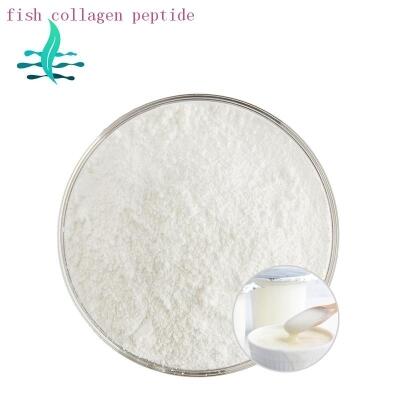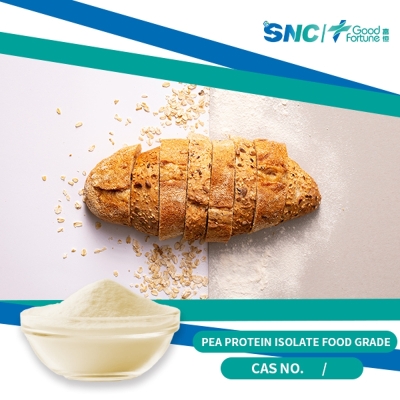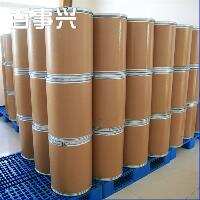Plum Bio Acquisition of Ipin: Amino Acid Industry Ushers in a New Pattern
-
Last Update: 2020-06-30
-
Source: Internet
-
Author: User
Search more information of high quality chemicals, good prices and reliable suppliers, visit
www.echemi.com
Meihua Bio (600873) announced on the evening of November 14th that it intends to purchase 100% of Ningxia Yipin Biotech Co., Ltd("Ipin Bio") by issuing shares and paying cash, while raising no more than 1.041 billion yuan in matching funds4Kg
Details Click: Meihua Bio plans to acquire Iskin Bio4KgMay 28, 2014, the 1980s and 90s popular Shenyang Hongmei Group was ruled bankrupt by the courtRed plum brand MSG is China's FIRST well-known trademark of MSG industry, according to data, in 2010 China's MSG production has reached 2.56 million tons, domestic consumption of more than 1.4 million tons a year, in the contradiction between supply and demand, the market price of MSG has been declining since 2010At the same time, due to the high pollution of MSG industry, high energy consumption, the industry environmental pressure long-term existenceRed Mei Group in 2007 had planned to reform and attract business, but for various reasons were unable to do so4Kg
Looking back now, plum biology's judgment of the industry cycle is forward-looking, and compared with the Red Plum Group, plum bioist is also lucky4Kg
Plum biology began to produce MSG in 2002, in the MSG industry has not yet shown the decline of the time, in 2009 Meihua bio shell Wuzhou Pearl listed, openup a new business structure, industrial transformation, its choice of entry point is the same as fermented products sucsine, lysineData show that in 2010, the composition of plum bio-income, MSG and glutamate reached 72%, amino acid products only 4%; In the income composition of plum organisms in 2013, MSG and glutamate fell to 47% and amino acid products rose to 28% 4Kg
Perhaps plum biology also did not think that the feeding amino acid industry is also struggling with overcapacity Starting from the second half of 2011, the price of fermented feed amino acids entered the downward channel On the one hand, leading enterprises are expanding production capacity, new entrants capacity release, the overall supply is increasing, lower prices Against this competitive backdrop, dentons, the world's largest producer of lysine, reported a total profit of HK$901 million in 2013, down 159% YoY; Another former leader in the domestic Su-Sine market, Star Lake Technology, was discontinued in 2013 4Kg
According to The research of Boahe News, the next 2-3 years is the period of concentrated release of amino acid production capacity for feeding, industrial concentration from concentration to relative lying, price decline, volatility increased, the market will be re-divided and rebalanced, in this situation, mergers and acquisitions activities become the most important means for enterprises to break through resource and market boundaries, access to strategic expansion The main reason is: close to saturated market space and homogenization competition make leading enterprises enter the deadlock stage of zero-sum game, a country or region of technology, resources, systems, capital and talent and other factors of the market is difficult to promote the overall development of the industry on a large scale again 4Kg
On November 14, 2014, Meihua Bio announced the acquisition of Ipone, the market pattern of the feed amino acids will change significantly 4Kg
According to Thesun Research, the global production of lysine, sucone and tryptophan reached 2.31 million tons, 414,000 tons and 155,000 tons in 2013, while China reached 1.22 million tons, 276,000 tons and 0.41 million tons, respectively, of which the production of plum biology was 135,000 tons, 130,000 tons and 0.09 million tons, respectively 4Kg
4Kg Iipin's main products include feed-grade lysine, suthine and tryptophan, in 2014 Iipin in Chifeng, Inner Mongolia, the plant, the new lysine production capacity of 170,000 tons / year (98% lysine capacity of 100,000 tons / year, 70% lysine production capacity of 100,000 tons / year) 98% 70,000 tons/year) In 2014, the total production capacity of Iplynine (98.5%) reached 357,000 tons 4Kg
In 2014, the global lysine production capacity continued to grow, the concentration of supply was scattered, and its capacity growth was mainly due to the expansion of production by Chinese manufacturers (Iipin, Chengfu) According to statistics, Meihua Bio acquired Ipin, the combined lysine production capacity (all 98.5 percent) reached 569,000 tons / year, the same as Dentons Biochemical's 573,000 tons / year of production capacity has been comparable Global lysine capacity concentration increased from CR6 to 62% to CR6 x 69% 4Kg
4Kg the rapid growth of global susine production from 2003 to 2013, during which China's sucone production accounted for an expanding proportion of the global market, in 2013 China's susine production accounted for 66.67 percent of the global market, becoming the world's largest susine production region; In 2014, the global production capacity of susine 570,000 tons, after the acquisition of Ipone, Susine production capacity reached 190,000 tons / year, accounting for 33% of the world The concentration of global susine production capacity increased from CR6 to 75% to CR6 x 91% 4Kg
4Kg in 2014 tryptophan production capacity increase mainly from the expansion of dragon production, domestic dragon production capacity reached 7000 tons / year, the production of the first in the country At the end of 2013, Yipin put into operation tryptophan, design capacity of 1000 tons / year, plum bio tryptophan production capacity of 1000 tons / year, after the completion of the acquisition will reach 2000 tons / year, ranked 4th in the world 4Kg
4Kg after the completion of this transaction, Meihua Bio's MSG, amino acid product production capacity and business coverage will be further expanded, to a certain extent, reduce the existing main business sales area relatively concentrated risk, improve the company's overall risk resistance In addition, through integration, the company and Ipin Bio in terms of capital, technology, management experience and other aspects of complementary and enhanced, to help improve the competitiveness in their respective product areas 4Kg
Plum biology's position in the amino acid industry has been improved unprecedentedly, and its leading role in the market has been enhanced Leading enterprises to market integration, amino acid industry ushered in a new competitive pattern, may bring a new market competition model for the feed amino acid industry and the possibility of market rebalancing 4Kg Meihua Bio (600873) announced on the evening of November 14th that it intends to purchase a 100% stake in Ningxia Yipin Biotech Co., Ltd ("Ipin Bio" ) by issuing shares and paying cash, while raising no more than 1.041 billion yuan in matching funds 4Kg
Details Click: Meihua Bio plans to acquire Iskin Bio 4Kg May 28, 2014, the 1980s and 90s popular Shenyang Hongmei Group was ruled bankrupt by the court Red plum brand MSG is China's FIRST well-known trademark of MSG industry, according to data, in 2010 China's MSG production has reached 2.56 million tons, domestic consumption of more than 1.4 million tons a year, in the contradiction between supply and demand, the market price of MSG has been declining since 2010 At the same time, due to the high pollution of MSG industry, high energy consumption, the industry environmental pressure long-term existence Red Mei Group in 2007 had planned to reform and attract business, but for various reasons were unable to do so 4Kg
Looking back now, plum biology's judgment of the industry cycle is forward-looking, and compared with the Red Plum Group, plum bioist is also lucky 4Kg
Plum biology began to produce MSG in 2002, in the MSG industry has not yet shown the decline of the time, in 2009 Meihua bio shell Wuzhou Pearl listed, openup a new business structure, industrial transformation, its choice of entry point is the same as fermented products sucsine, lysine Data show that in 2010, the composition of plum bio-income, MSG and glutamate reached 72%, amino acid products only 4%; In the income composition of plum organisms in 2013, MSG and glutamate fell to 47% and amino acid products rose to 28% 4Kg
Perhaps plum biology also did not think that the feeding amino acid industry is also struggling with overcapacity Starting from the second half of 2011, the price of fermented feed amino acids entered the downward channel On the one hand, leading enterprises are expanding production capacity, new entrants capacity release, the overall supply is increasing, lower prices Against this competitive backdrop, dentons, the world's largest producer of lysine, reported a total profit of HK$901 million in 2013, down 159% YoY; Another former leader in the domestic Su-Sine market, Star Lake Technology, was discontinued in 2013 4Kg
According to The research of Boahe News, the next 2-3 years is the period of concentrated release of amino acid production capacity for feeding, industrial concentration from concentration to relative lying, price decline, volatility increased, the market will be re-divided and rebalanced, in this situation, mergers and acquisitions activities become the most important means for enterprises to break through resource and market boundaries, access to strategic expansion The main reason is: close to saturated market space and homogenization competition make leading enterprises enter the deadlock stage of zero-sum game, a country or region of technology, resources, systems, capital and talent and other factors of the market is difficult to promote the overall development of the industry on a large scale again 4Kg
On November 14, 2014, Meihua Bio announced the acquisition of Ipone, the market pattern of the feed amino acids will change significantly 4Kg
According to Thesun Research, the global production of lysine, sucone and tryptophan reached 2.31 million tons, 414,000 tons and 155,000 tons in 2013, while China reached 1.22 million tons, 276,000 tons and 0.41 million tons, respectively, of which the production of plum biology was 135,000 tons, 130,000 tons and 0.09 million tons, respectively 4Kg
4Kg Iipin's main products include feed-grade lysine, suthine and tryptophan, in 2014 Iipin in Chifeng, Inner Mongolia, the plant, the new lysine production capacity of 170,000 tons / year (98% lysine capacity of 100,000 tons / year, 70% lysine production capacity of 100,000 tons / year) 98% 70,000 tons/year) In 2014, the total production capacity of Iplynine (98.5%) reached 357,000 tons 4Kg
In 2014, the global lysine production capacity continued to grow, the concentration of supply was scattered, and its capacity growth was mainly due to the expansion of production by Chinese manufacturers (Iipin, Chengfu) According to statistics, Meihua Bio acquired Ipin, the combined lysine production capacity (all 98.5 percent) reached 569,000 tons / year, the same as Dentons Biochemical's 573,000 tons / year of production capacity has been comparable Global lysine capacity concentration increased from CR6 to 62% to CR6 x 69% 4Kg
4Kg the rapid growth of global susine production from 2003 to 2013, during which China's sucone production accounted for an expanding proportion of the global market, in 2013 China's susine production accounted for 66.67 percent of the global market, becoming the world's largest susine production region; In 2014, the global production capacity of susine 570,000 tons, after the acquisition of Ipone, Susine production capacity reached 190,000 tons / year, accounting for 33% of the world The concentration of global susine production capacity increased from CR6 to 75% to CR6 x 91% 4Kg
4Kg in 2014 tryptophan production capacity increase mainly from the expansion of dragon production, domestic dragon production capacity reached 7000 tons / year, the production of the first in the country At the end of 2013, Yipin put into operation tryptophan, design capacity of 1000 tons / year, plum bio tryptophan production capacity of 1000 tons / year, after the completion of the acquisition will reach 2000 tons / year, ranked 4th in the world 4Kg
4Kg after the completion of this transaction, Meihua Bio's MSG, amino acid product production capacity and business coverage will be further expanded, to a certain extent, reduce the existing main business sales area relatively concentrated risk, improve the company's overall risk resistance In addition, through integration, the company and Ipin Bio in terms of capital, technology, management experience and other aspects of complementary and enhanced, to help improve the competitiveness in their respective product areas 4Kg
Plum biology's position in the amino acid industry has been improved unprecedentedly, and its leading role in the market has been enhanced Leading enterprises to market integration, amino acid industry ushered in a new competitive pattern, may bring a new market competition model for the feed amino acid industry and the possibility of market rebalancing 4Kg
Share it on feed
This article is an English version of an article which is originally in the Chinese language on echemi.com and is provided for information purposes only.
This website makes no representation or warranty of any kind, either expressed or implied, as to the accuracy, completeness ownership or reliability of
the article or any translations thereof. If you have any concerns or complaints relating to the article, please send an email, providing a detailed
description of the concern or complaint, to
service@echemi.com. A staff member will contact you within 5 working days. Once verified, infringing content
will be removed immediately.







